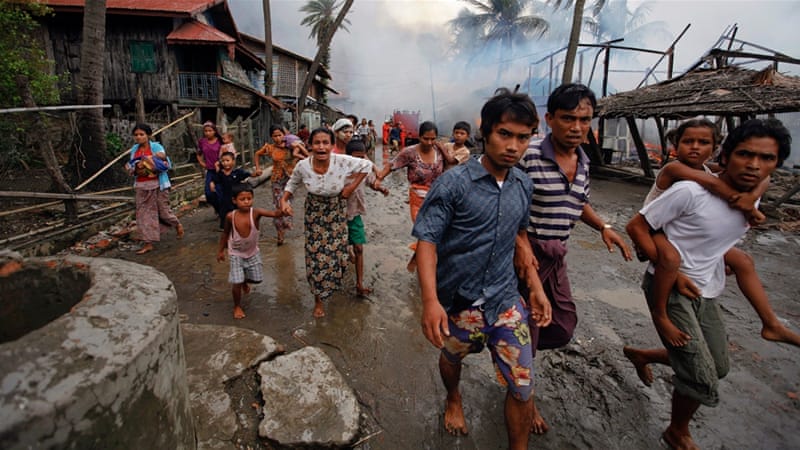Myanmar’s military carried out an aerial strike in south Buthidaung township in the Rakhine State on April 5. The attack killed as many as 30 civilians and injured dozens more. Eyewitnesses said that the civilians were collecting bamboos in the nearby area at the time when the army helicopters fired indiscriminately towards them.
The attack has been condemned by the United Nations and various rights groups, who accused Myanmar army of committing war crimes. The United Nations Human Rights Office earlier said they have “credible reports of the killing of civilians, burning of houses, arbitrary arrests, abductions, indiscriminate fire in civilian areas, and damage to cultural property”.
On April 9, the United Nations added that the number of casualties may be higher than expected. “We have unconfirmed reports that the number maybe as high as 30,” the spokesperson for the Office of High Commissioner for Human Rights, Ravina Shamdasani, said.
The Myanmar security forces denied that their forces killed any civilians, claiming that the air strike was conducted to “neutralize the terrorists activities” in the western part of Myanmar. Arakan Army, the insurgent group, rejected the army’s statement, saying that the dead and injured were not the armed group’s accomplices, but villagers.
Myanmar’s military officials, including commander-in-chief Min Aung Hlaing, are believed to have carried out human rights violations in the Rakhine, Kachin and Shan States. The Report of the Independent International Fact-Finding Mission on Myanmar that was published in September 2018 detailed how Tatmadaw, the armed forces, “committed crimes against humanity”.
The 20-page report recommended that the top five military officials must face prosecution for their involvement in numerous massacres and decades of persecution of minorities. The repeated arbitrary arrests, summary executions, forced labor, ill-treatment and sexual violence committed by the Myanmar army and militias led to the exodus of 700,000 Rohingyas in late August 2017.





